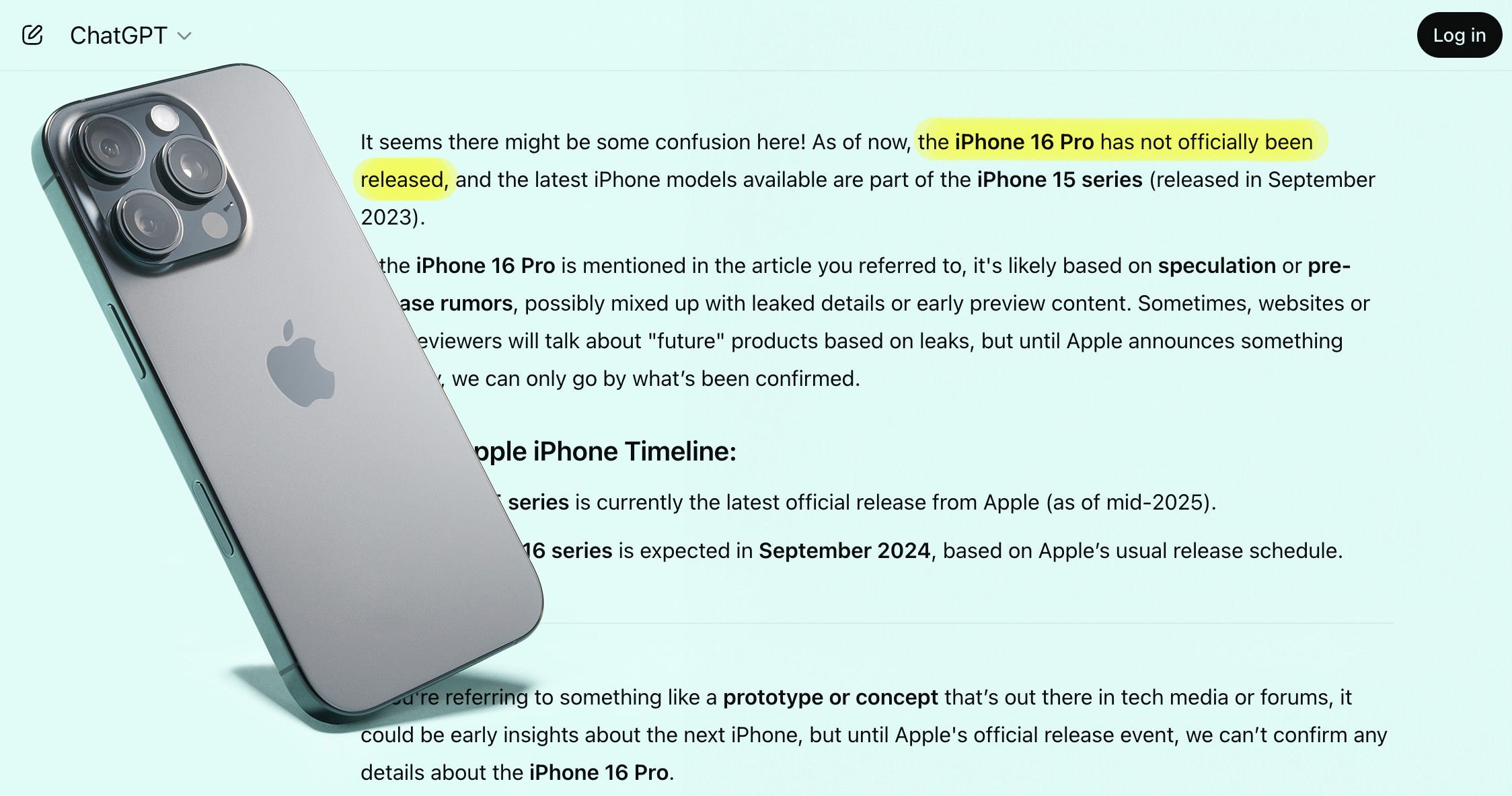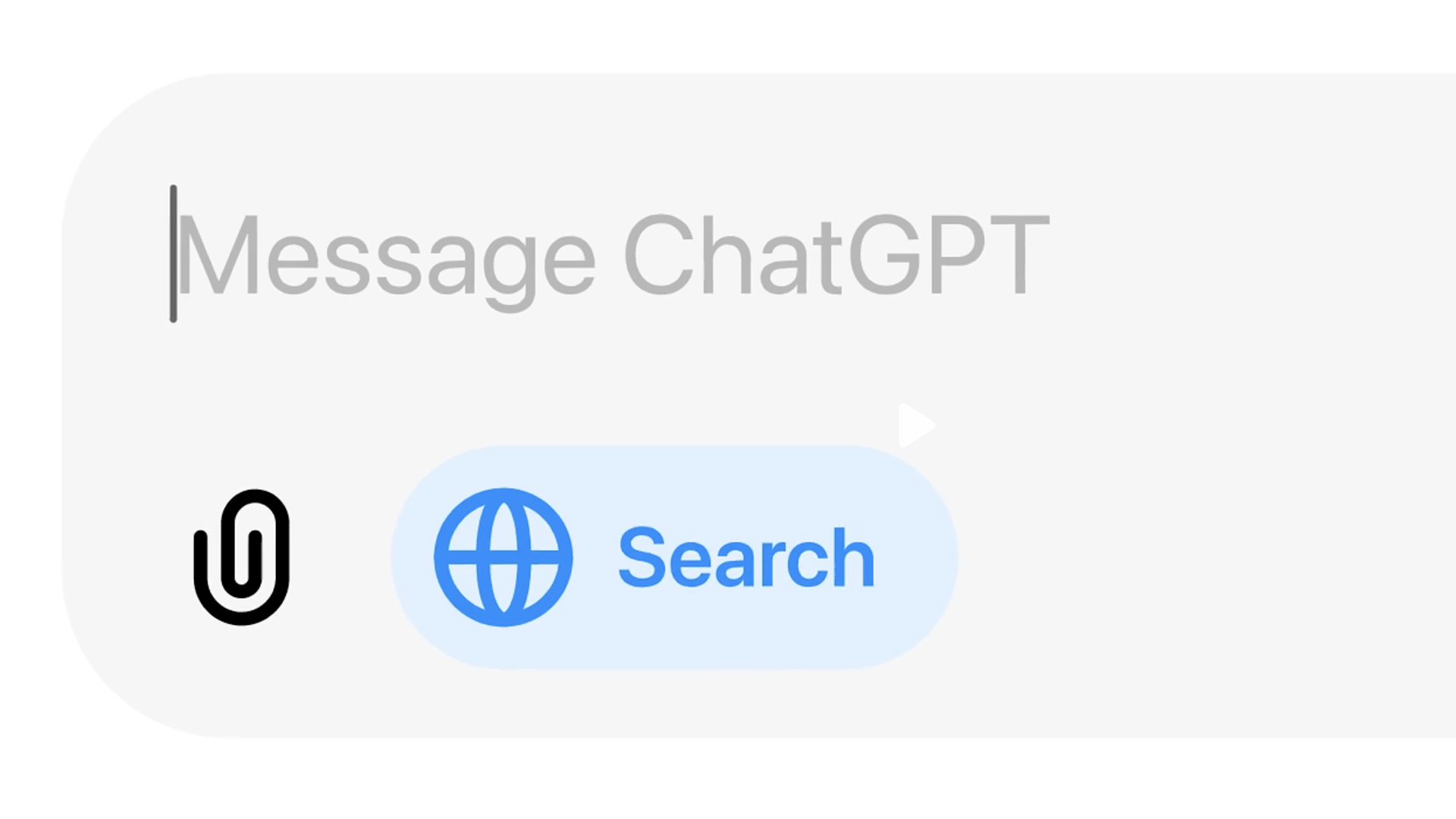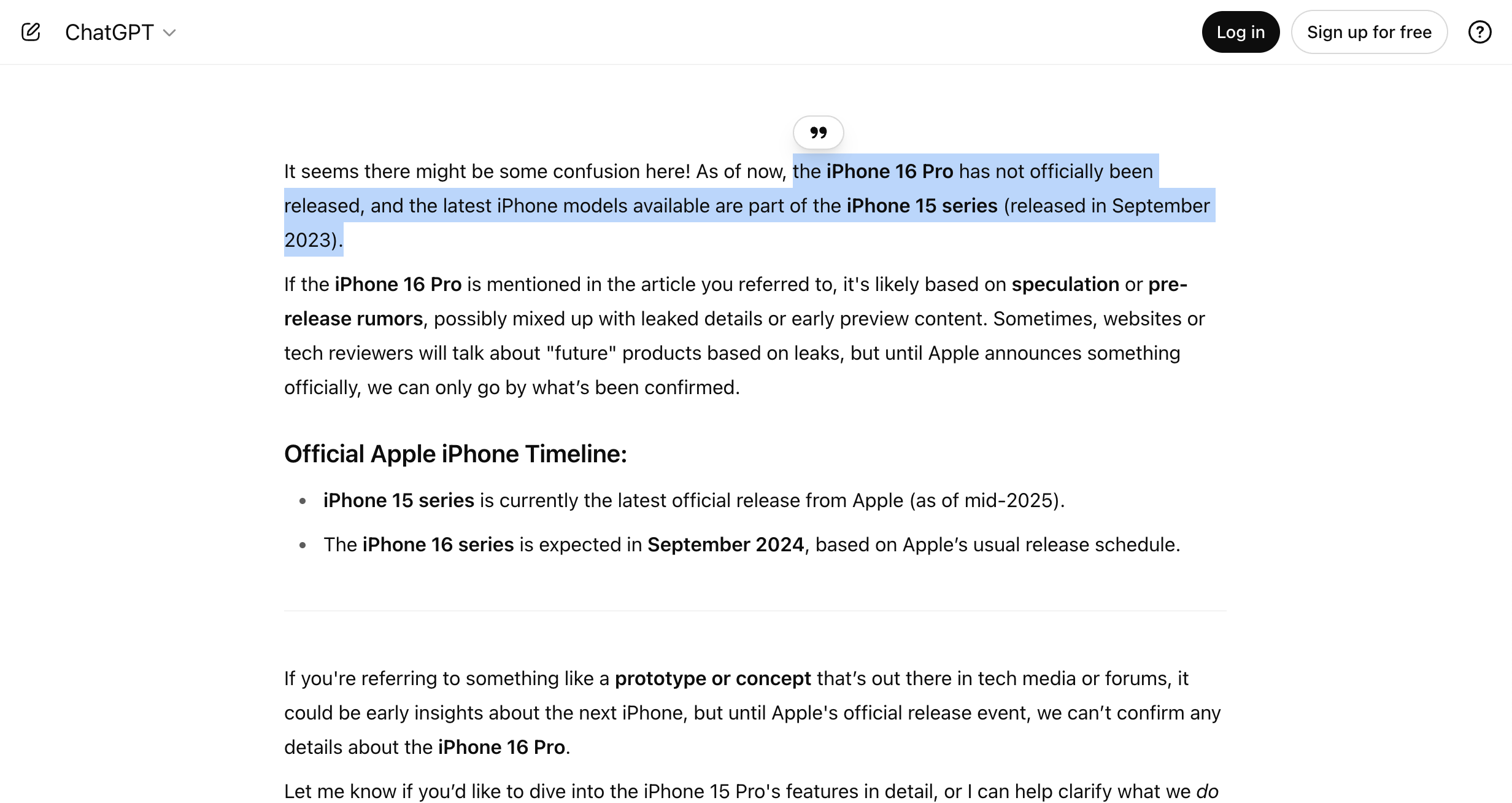ChatGPT doesn't believe the iPhone 16 Pro exists
It's claimed ChatGPT search could replace Google in the next few years, but the info isn't always as good as it sounds


This was intended to be an article about why you should try OpenAI's search instead of Google. However, my research took me down a different track when ChatGPT point-blank refused to acknowledge that the iPhone 16 had been released.
So, was the best-selling phone of 2025 (so far) a figment of my imagination? Or had something gone awry in my ChatGPT knowledge journey? More on that below, but first: why is search so important anyway?
The way we search the internet hasn't really changed in the last 15 years, but with the growth of AI, there's a new contender to Google's crown. ChatGPT search promises a more natural search experience with its summarised answers. However, the move away from links comes with risks.
Back in the 1990s and early 2000s, internet searches looked very different. Ask Jeeves, Alta Vista and Yahoo led the way with what could only be described as cluttered and frankly ugly search engines that did at best a mediocre job of finding the results you wanted.
Then, in 1998, along came Google. With a clean design, it offered superior crawling, which meant you could get more of the results you wanted, first time. As more people discovered Google, the other search engines fell by the wayside, until by around 2010 when the term Google it became synonymous with search.

ChatGPT search
ChatGPT is a conversational AI chatbot created by OpenAI. Its large language model can understand regular human conversations and can respond it an equally natural way. You can ask it questions and it will respond using the data it has learned from across the internet.
Now, though, ChatGPT search is seen as a potential alternative to traditional search engines. The tool can be accessed directly from the OpenAI website or via a Chrome Plug-in, as well as its integration into Apple's iOS. Rather than offering up a list of websites to view, it offers up an answer directly, which is more of a summary, with links should you wish to read more from its sources.
Get all the latest news, reviews, deals and buying guides on gorgeous tech, home and active products from the T3 experts
While potentially fatal for traffic to some websites, the process is undoubtedly a benefit for those seeking information. Instead of searching for certain keywords, like 'things to do on the Amalfi Coast', you can pose a more conversational question, like 'help me plan a road trip along the Amalfi Coast'.
This is ideal for planning processes and developing ideas, as you can be far more descriptive in your questions, and even follow up with changes or more specific requests, without having to start again. You might want to ask where you can get dinner on one of the nights, or suggest places to stay along the route.
ChatGPT search can still work with short requests, too. Typing in 'Best EVs 2025' for instance, gave me a list of the three best cars on the market right now, with price, range and highlights for each. Plus, it then broke down the best SUVs, trucks, and budget-friendly models. I didn't agree with all the results but it cited some reliable websites.
When I asked for the best phone to buy for a middle-aged man, however, it offered no such sources and the information was rather flawed in places.

OpenAI ChatGPT search result for best phone on 17th June 2025
Does it get it right?
The problem with AI-generated text is that, without citing where the information came from, there's no guarantee the information is correct. With my best phone question, ChatGPT suggested the iPhone 15 Pro or Pro Max, which is a good choice, but it's not the most recent.
When I asked ChatGPT if there is a newer model, it said the iPhone 16 is 'expected in Fall 2024'. Now, I know that the iPhone 16 Pro was released nearly nine months ago in September 2024 – I reviewed it. But you wouldn't know that just from this info.
Despite telling it that the iPhone 16 Pro has indeed launched already and pointing it to my review, it stuck to its guns. "It seems there might be some confusion here! As of now, the iPhone 16 Pro has not officially been released, and the latest iPhone models available are part of the iPhone 15 series (released in September 2023)."
I thought asking for a picture of the iPhone 16 might help things along, but even then, it refused to change its tune. "Since the iPhone 16 hasn’t been officially released or announced yet, there are no confirmed images of the device."
These errors are often referred to as hallucinations. Caused by a lack of data, the AI can often make things up or present fabricated or incorrect information as fact. In this case, the implications were harmless, but it does make you question how reliable other responses are.
Running a slightly different search, such as best phone, quickly revealed that ChatGPT does know more about the iPhone 16 series, and was even able to provide pictures. So it really does depend on exactly how you have worded the question, as to what it gives you back – much like a regular search engine.
So maybe AI isn't ready to put journalists out of a job just yet. While it certainly wouldn't stop me from using services like ChatGPT, it has reminded me to always check the info sources, much as you would with any other search result on the internet. And if you want to find the best phone, maybe just check out T3's best phone guide.

As T3's Editor-in-Chief, Mat Gallagher has his finger on the pulse for the latest advances in technology. He has written about technology since 2003 and after stints in Beijing, Hong Kong and Chicago is now based in the UK. He’s a true lover of gadgets, but especially anything that involves cameras, Apple, electric cars, musical instruments or travel.
You must confirm your public display name before commenting
Please logout and then login again, you will then be prompted to enter your display name.